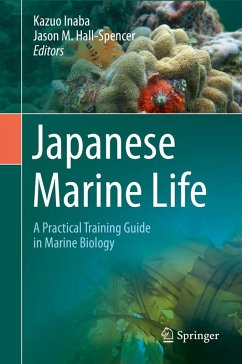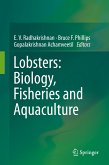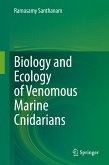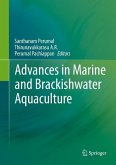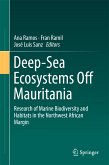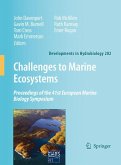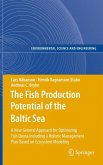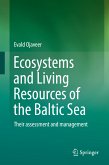Japanese Marine Life (eBook, PDF)
A Practical Training Guide in Marine Biology
Redaktion: Inaba, Kazuo; Hall-Spencer, Jason M.


Alle Infos zum eBook verschenken

Japanese Marine Life (eBook, PDF)
A Practical Training Guide in Marine Biology
Redaktion: Inaba, Kazuo; Hall-Spencer, Jason M.
- Format: PDF
- Merkliste
- Auf die Merkliste
- Bewerten Bewerten
- Teilen
- Produkt teilen
- Produkterinnerung
- Produkterinnerung

Hier können Sie sich einloggen

Bitte loggen Sie sich zunächst in Ihr Kundenkonto ein oder registrieren Sie sich bei bücher.de, um das eBook-Abo tolino select nutzen zu können.
This book gives an overview of the diverse marine fauna and flora of Japan and includes practical guides for investigating the biology and ecology of marine organisms. Introducing marine training courses offered at a range of Japanese universities, this is the first English textbook intended for marine biology instructors and students in Japan. It provides essential information on experimental procedures for the major areas of marine biology, including cell and developmental biology, physiology, ecology and environmental sciences, and as such is a valuable resource for those in Asian countries…mehr
- Geräte: PC
- ohne Kopierschutz
- eBook Hilfe
- Größe: 24.15MB
![Lobsters: Biology, Fisheries and Aquaculture (eBook, PDF) Lobsters: Biology, Fisheries and Aquaculture (eBook, PDF)]() Lobsters: Biology, Fisheries and Aquaculture (eBook, PDF)161,95 €
Lobsters: Biology, Fisheries and Aquaculture (eBook, PDF)161,95 €![Biology and Ecology of Venomous Marine Cnidarians (eBook, PDF) Biology and Ecology of Venomous Marine Cnidarians (eBook, PDF)]() Ramasamy SanthanamBiology and Ecology of Venomous Marine Cnidarians (eBook, PDF)169,95 €
Ramasamy SanthanamBiology and Ecology of Venomous Marine Cnidarians (eBook, PDF)169,95 €![Advances in Marine and Brackishwater Aquaculture (eBook, PDF) Advances in Marine and Brackishwater Aquaculture (eBook, PDF)]() Advances in Marine and Brackishwater Aquaculture (eBook, PDF)113,95 €
Advances in Marine and Brackishwater Aquaculture (eBook, PDF)113,95 €![Deep-Sea Ecosystems Off Mauritania (eBook, PDF) Deep-Sea Ecosystems Off Mauritania (eBook, PDF)]() Deep-Sea Ecosystems Off Mauritania (eBook, PDF)217,95 €
Deep-Sea Ecosystems Off Mauritania (eBook, PDF)217,95 €![Challenges to Marine Ecosystems (eBook, PDF) Challenges to Marine Ecosystems (eBook, PDF)]() Challenges to Marine Ecosystems (eBook, PDF)161,95 €
Challenges to Marine Ecosystems (eBook, PDF)161,95 €![The Fish Production Potential of the Baltic Sea (eBook, PDF) The Fish Production Potential of the Baltic Sea (eBook, PDF)]() Lars HåkansonThe Fish Production Potential of the Baltic Sea (eBook, PDF)113,95 €
Lars HåkansonThe Fish Production Potential of the Baltic Sea (eBook, PDF)113,95 €![Ecosystems and Living Resources of the Baltic Sea (eBook, PDF) Ecosystems and Living Resources of the Baltic Sea (eBook, PDF)]() Evald OjaveerEcosystems and Living Resources of the Baltic Sea (eBook, PDF)129,95 €
Evald OjaveerEcosystems and Living Resources of the Baltic Sea (eBook, PDF)129,95 €-
-
-
Dieser Download kann aus rechtlichen Gründen nur mit Rechnungsadresse in A, B, BG, CY, CZ, D, DK, EW, E, FIN, F, GR, HR, H, IRL, I, LT, L, LR, M, NL, PL, P, R, S, SLO, SK ausgeliefert werden.
- Produktdetails
- Verlag: Springer Nature Singapore
- Seitenzahl: 367
- Erscheinungstermin: 4. Mai 2020
- Englisch
- ISBN-13: 9789811513268
- Artikelnr.: 59391770
- Verlag: Springer Nature Singapore
- Seitenzahl: 367
- Erscheinungstermin: 4. Mai 2020
- Englisch
- ISBN-13: 9789811513268
- Artikelnr.: 59391770
- Herstellerkennzeichnung Die Herstellerinformationen sind derzeit nicht verfügbar.
